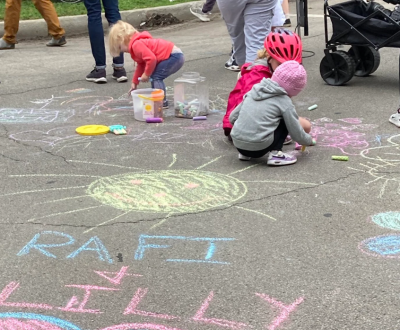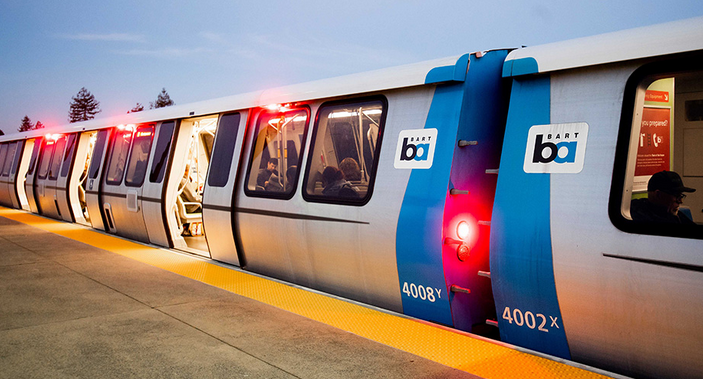Last summer was a terrible season for child traffic fatalities in Chicagoland. From June through August 2022, at least seven children were struck and killed by drivers while walking, waiting for a bus, riding a scooter, or bicycling in the region: Rafi Cardenas, 2; Lily Shambrook, 3; Ja’Lon James, 11; Joshua Avina-Luna, 15; Zain Jaber, 14; Angela Short, 14; and Julian Medina, 14.
But yesterday there was a glimmer of hope that we may be able help prevent some of these kinds of senseless deaths in the future. The Chicago City Council passed an ordinance sponsored by Ald. Andre Vasquez (40th) that allows the city to tow vehicles inhibiting “the free-flow of traffic on a street path or lane designated for the use of bicycles.” Forty-five of Chicago’s 50 alders had previously endorsed the legislation.
The measure is particularly relevant to Lily Shambrook’s case. On June 9 she was riding on the back of her mother’s bicycle, heading east in a bike lane on Leland Avenue in Uptown. As they approached Winthrop Avenue, they encountered an illegally parked ComEd truck, and the woman was forced to merge into the travel lane to get around it. She was then clipped by a second trucker, and the toddler fell under his wheels and was fatally struck.
Here’s are the details of how the ordinance could help keep such tragedies from happening:
- The legislation allows police, traffic control aides, parking enforcement personnel, and other authorized people to ticket for bikeway parking violations.
- The Chicago Department of Finance, which handles parking tickets, will be required to submit a proposed ordinance to pilot automated camera enforcement of bike lanes by February 15.
- Traffic control devices must be placed to warn bike riders and drivers about permitted bike lane closures, with violations carrying a fine of $500 to $2,500.
- All bike lane parking violations will carry a $250 fine. As it stands bikeway parking, that doesn’t result in a collision only involves a $150 penalty.
The day before the vote, Lily’s father expressed frustration that truck drivers were still obstructing the stretch of Leland where her crash occurred.
permit or not, how it this okay and are their provisions in tomorrow’s bill to address lack of safety signage @Andrefor40th
if there were no permits how long would it take to get a hook on these big vehicles? #bikechi @bikelaneuprise @ChiCritMass @bikegridnow pic.twitter.com/Bm6iFpPurD
— TGS (@LilyBeansDad) December 13, 2022
Vasquez responded that the legislation would force contractors to deploy traffic control devices to give bike riders advanced warning.
The morning of the vote, Rafi Cardenas’ mother Marina Ross spoke at a press conference at City Hall, according to a Sun-times report. She said that while the boy would have turned three last week, because a driver fatally struck him on a mini scooter on June 2 at Eastwood Avenue and Leavitt Street in Lincoln Square, she instead needs to pick out a grave marker for him. “Walking, biking, riding a mini scooter are safe activities. Driving is unsafe. Drivers should hold themselves accountable, and if they can’t do that, we should hold them accountable.”
After the ordinance passed, Vasquez told Streetsblog he feels the legislation is “a tangible and strong first step towards the pivot our city needs to make in order to balance the needs of pedestrians, cyclists, and drivers in our city.” He argued that increasing the fine to the maximum amount will force drivers to take bike lane safety serious. “There is much more work to do, but we are grateful that we could pass this ordinance to begin the larger work to keep our streets safe.”
Great news for cyclists – we all want to be safe on Chicago’s city streets & get more Chicagoans to choose cycling. TY Ald. Andre Vasquez @Andrefor40th! Now let’s see this ordinance be enforced! @ELPCenter @activetrans @bikelaneuprise @chicagosmayor https://t.co/5YasnjK4cI
— Judith Nemes (@JudithELPC) December 14, 2022
Hopefully it’s some comfort to the parents of Lily Shambrook, Rafi Cardenas, and all the other local kids who were lost to traffic violence this year, that their stories helped bring about change that could prevent others from experiencing that kind of heartbreak. But clearly there’s much more work to be done before we have safe streets for all in Chicagoland






